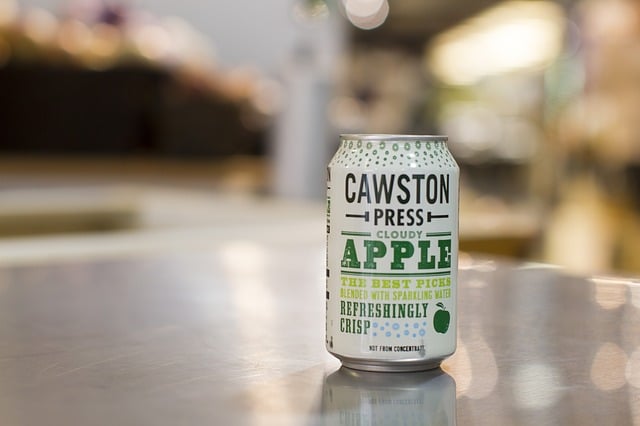Translation services for UK Product Specification Sheets are indispensable for global businesses, as they ensure technical details and specialized terminology are accurately conveyed in the target language. Specialized translation agencies with expert translators who are native speakers, credentialed, and knowledgeable about the industry provide these services. They employ detailed reviews of original spec sheets to translate technical terms and jargon correctly, convert units of measurement, and adapt texts to fit local linguistic norms without sacrificing accuracy. Rigorous quality assurance processes involve subject matter experts who confirm the translations' technical fidelity and accuracy. Utilizing European Norms (EN) or American National Standards Institute (ANSI) standards as benchmarks, these translation services ensure that UK products maintain their integrity and safety standards in international markets. Accurate translations help businesses avoid the pitfalls of mistranslations, which can lead to legal issues, delays, and safety hazards. By leveraging professional translation services for UK product specification sheets, companies can effectively communicate with international audiences, fostering consumer confidence and driving market expansion.
Navigating the global marketplace hinges on clear and precise communication, particularly in technical domains such as UK product specifications. This article sheds light on the intricacies of translating these specifications accurately, a critical aspect for businesses aiming to expand their reach. We delve into the essential steps of the translation process, scrutinize benchmarks and metrics that gauge translation service quality, and analyze real-world case studies. Moreover, we explore the transformative impact of technology on ensuring high fidelity in translations for UK product spec sheets. Whether you’re a seasoned exporter or new to international trade, understanding how to select the most reliable translation service providers becomes paramount. Join us as we examine the accuracy and reliability of UK product spec translations, pivotal for your business’s success in multilingual markets.
- Understanding the Importance of Precision in UK Product Spec Translations
- The Process of Translating UK Product Specifications: A Step-by-Step Breakdown
- Measuring Accuracy: Benchmarks and Metrics for Evaluating Translation Services
- Case Studies: Real-World Examples of UK Product Spec Translation Success and Challenges
Understanding the Importance of Precision in UK Product Spec Translations

When it comes to translating UK product specification sheets, precision is paramount. The accuracy of these translations can directly impact the success and safety of products in international markets. High-quality translation services for UK product specification sheets are not merely about conveying information; they involve a deep understanding of technical language, industry-specific terminology, and cultural nuances that can alter meaning. A single mistranslation can lead to miscommunication, potentially causing delays, legal issues, or even safety concerns. For businesses looking to expand their reach, ensuring that product specs are accurately translated is essential for maintaining brand integrity and customer trust.
In the competitive landscape of global trade, reliability in translation services for UK product specification sheets is a significant differentiator for companies. It’s not enough to simply convert text from one language to another; translators must possess expertise in the subject matter, coupled with a keen eye for detail. This expertise is often found within specialized translation agencies that employ native speakers with professional qualifications and industry-specific experience. By leveraging these professionals, businesses can guarantee that their product specs are accurately communicated across borders, thereby enhancing the effectiveness of their international operations.
The Process of Translating UK Product Specifications: A Step-by-Step Breakdown

UK product specifications demand precision and clarity, especially when translating into other languages. The process of accurately conveying technical details is multifaceted and requires specialized translation services for UK product specification sheets. To begin with, a skilled translator familiar with both the source and target languages, as well as the industry-specific terminology, is crucial. This individual must possess a deep understanding of the context and content to ensure that the translated text maintains the original meaning without any ambiguity.
The first step in the translation process involves a comprehensive review of the UK product specification sheets. This includes identifying all technical terms, specific jargon, and unique abbreviations that are specific to the product or industry. The translator then cross-references these against authoritative glossaries or bilingual dictionaries to ensure that each term is translated consistently and correctly throughout the document. Subsequent steps include converting units of measurement, which may be necessary when translating between languages with different standard systems, and adjusting the text for local linguistic norms without altering the technical content’s accuracy or integrity. Once the initial draft is complete, it undergoes a thorough review by subject matter experts to verify that all specifications are accurately translated. Finally, a quality assurance process is implemented to proofread the document for errors in translation and formatting, ensuring that the UK product specification sheets are ready for use in their target language context. This meticulous step-by-step approach is essential for providing reliable translation services for UK product specification sheets, facilitating seamless communication across different markets and languages.
Measuring Accuracy: Benchmarks and Metrics for Evaluating Translation Services

When assessing the accuracy of translation services for UK product specification sheets, it is crucial to establish benchmarks and employ metrics that reflect the quality of the translations. To begin with, translation services must adhere to industry-standard benchmarks such as the European Norms (EN) or the American National Standards Institute (ANSI) standards, which provide guidelines for terminological consistency and accuracy in technical translations. These benchmarks ensure that the translated specifications align with the original content in terms of meaning, nuance, and technical precision.
Furthermore, evaluating translation services involves a combination of quantitative and qualitative metrics. Quantitative measures include metrics such as translation accuracy rate, which compares the translator’s output to a reference translation, and error rates per segment or word, which can indicate a translator’s proficiency with specific product specification terminology. Qualitative assessments, on the other hand, involve expert review by subject matter experts who can evaluate the technical content’s coherence, grammatical correctness, and adherence to the UK’s linguistic norms. These comprehensive evaluations are essential for ensuring that translations of product specification sheets accurately convey the intended information, thereby upholding the reputation and safety standards associated with UK-manufactured products.
Case Studies: Real-World Examples of UK Product Spec Translation Success and Challenges

UK product specification sheets are critical documents for businesses aiming to expand their market reach, particularly into international territories. Translation services for UK product specification sheets play a pivotal role in this process, ensuring that technical details are accurately conveyed in the target language. Real-world examples abound where precise translations have facilitated successful market entry and enhanced consumer trust. For instance, a multinational electronics company leveraged specialized translation services to localize its product specs for the German market. The attention to detail in the translation process resulted in a seamless user experience and significant sales growth in that region. Conversely, challenges arise when translation is mishandled; a case in point involves a UK-based kitchen appliance brand that experienced a backlash after an incorrect translation led to misleading product specifications, ultimately impacting customer satisfaction and the brand’s reputation. These scenarios underscore the importance of employing expert translation services for UK product specification sheets, as they not only bridge linguistic gaps but also ensure cultural relevance and compliance with regional standards.
In conclusion, the precision of translation services for UK Product Specification Sheets is a critical aspect that directly impacts global market success and consumer trust. A meticulous process, underpinned by expert linguists and advanced technology, ensures the fidelity of technical translations. By adhering to industry benchmarks and employing stringent metrics for evaluation, translation accuracy can be consistently upheld. The case studies presented underscore the significance of this endeavor and highlight the tangible benefits of reliable translations in diverse markets. Businesses that prioritize precise translations of their UK product specifications not only enhance their reputation but also pave the way for seamless cross-border transactions, ultimately driving sales and fostering consumer confidence.
